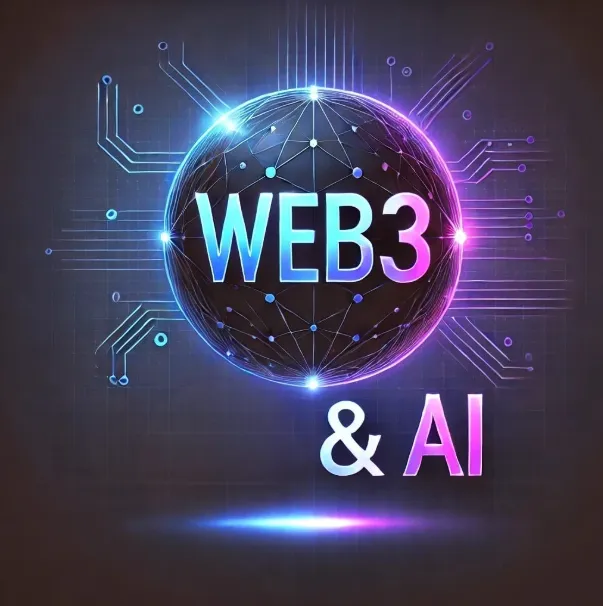In recent years, Web3 has promised to revolutionize digital ownership and finance, yet the complexity of navigating decentralized platforms has remained a barrier for many. Now, AI agents are stepping in to change the game. These automated entities are becoming the driving force behind various aspects of Web3, from decentralized finance (DeFi) to decentralized autonomous organizations (DAOs) and even the emerging world of cross-chain interactions. Let’s explore how AI agents are reshaping the Web3 ecosystem and what it means for the future.
AI Agents in DeFi: From Manual to Autonomous Management
DeFi, which has gained momentum by offering decentralized financial services, is being radically transformed by AI agents. These agents are capable of managing yield farming, liquidity pools, and even arbitrage opportunities at a level of sophistication and speed that human teams can’t match. Rather than waking up in the middle of the night to optimize assets or scout for new opportunities, founders are deploying AI agents that continuously learn from on-chain data, interact with protocols, and negotiate for the best possible returns.
For example, Optimus, an on-chain agent from Olas Network, autonomously reallocates assets across liquidity pools to maximize APRs, adapting in real-time to changing market conditions. Similarly, Virtuals Protocol allows users to deploy AI agents for tasks like trading, research, and risk management, making it easier for users to engage in DeFi markets. Meanwhile, Cookie.Fun by Cookie DAO sees over 1,400 AI agents voting and executing decisions based on pre-defined governance criteria, ensuring that DAOs remain responsive around the clock.
DAOs: The Role of AI in Governance
One of the most challenging aspects of DAOs has always been effective governance. Traditional models often suffer from voter apathy and slow decision-making processes. AI agents are now stepping in to automate various governance functions, making DAOs more efficient and less susceptible to manipulation.
For instance, Ozak AI utilizes agents to scan, summarize, and prioritize proposals, offering recommendations on vote delegations. This automation reduces the administrative burden on DAO members and ensures that the organization remains agile. Furthermore, AI-driven smart contract auditing tools are now detecting vulnerabilities in real-time, enhancing the security of DAOs and protecting them from governance attacks.
Gaming, NFTs, and the Metaverse: AI as Participants
The impact of AI agents extends beyond traditional finance and governance into the realm of gaming, NFTs, and the Metaverse. AI agents are no longer just non-playable characters (NPCs) in games; they are active economic participants, owning wallets, trading assets, and creating personalized user experiences.
In Parallel Colony, AI agents are used as in-game assistants, automating tasks like asset management and even contributing to the DAO governance structure within the game. Similarly, OriginTrail uses AI agents within its decentralized knowledge graph to validate supply chain data and track NFT provenance, improving the transparency of digital assets.
Cross-Chain Infrastructure: Bridging the Multi-Chain Ecosystem
The fragmentation of blockchain networks has always been a significant obstacle for Web3 development. AI agents are now bridging this gap, allowing for seamless interoperability between different blockchains. With the rise of LayerZero and Axelar, AI agents are optimizing asset flows and automating cross-chain transactions, allowing protocols to communicate and share data across multiple chains.
In addition, tools like ChainGPT and SubQuery are simplifying the deployment of agent-powered decentralized apps (dApps) that can operate across different blockchains, reducing the technical complexity associated with cross-chain interactions.
The Security and Trust Factor: Balancing Innovation with Risk
As AI agents take on more responsibility, they also introduce new risks. The security and trustworthiness of AI agents are paramount, and the best teams are building these agents with safety features embedded from the start. However, vulnerabilities such as data poisoning and algorithmic bias present real concerns. Security researchers have noted that improperly secured agents could be tricked into executing fraudulent transactions or ignoring potential risks. Moreover, if an agent is trained on biased data, it could perpetuate unfair decisions in areas like lending or voting.
The solution? Projects like Cheqd are leading the charge in verifying the identities of AI agents, ensuring that only ethical and trusted agents interact with user assets. This is an essential step toward building more secure and reliable AI-driven ecosystems.
Real-World Use Cases: AI Agents in Consumer Applications
While AI agents have predominantly been associated with Web3, their impact is also felt in the broader tech industry. Take, for example, Bank of America’s Erica, an AI-powered virtual assistant that handles over a billion customer interactions, reducing call center traffic by 17% and increasing mobile engagement by 30%. Similarly, H&M’s Virtual Shopping Assistant resolves 70% of queries autonomously and drives a 25% increase in conversion rates. These examples highlight how AI agents are already enhancing customer service and operational efficiency in traditional industries.
Final Thoughts: Embracing the Agentic Future
The rise of AI agents is not just a trend in Web3—it’s a paradigm shift that will define the next generation of decentralized networks. As AI agents become central players in DeFi, DAOs, gaming, and cross-chain operations, they will play a crucial role in shaping the future of these ecosystems. The teams that succeed in this new landscape will be those that view AI agents as essential components of their protocols, designing systems where both humans and machines collaborate to create value. The future is here—those who build for it now will lead the way.





